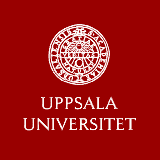Kalendarium
Gästföreläsning24 maj 2017 kl. 14:15 – 16:00
Lokal: Eng 16-3062
Professor Tim Youngs (Nottingham Trent University)
Sounding Travel: The Auditory in Travel Writing
Despite some exceptions, studies of travel writing have largely ignored descriptions of the sounds heard by the traveller as s/he moves through landscapes and cultures. Yet these sounds do far more than provide descriptive texture. Rather, they often carry deep cultural meaning and have political significance. They play a crucial role in the construction of self and other. Through the discussion of some case-studies, this paper considers how representations of natural and mechanical sounds reflect and contribute to feelings of cultural affinity and estrangement. Professor Youngs is director of Nottingham Trent University’s Centre for Travel Writing Studies, which he founded in 2002-3. He has specialised in the field for nearly 30 years, although he also undertakes teaching and research in many other areas of United States literature (especially African American writing), post-1800 English Literature, and postcolonial writing. His most recent single-authored books include The Cambridge Introduction to Travel Writing and Beastly Journeys: Travel and Transformation at the fin de Siècle (both 2013). He is currently co-editing The Cambridge History of Travel Writing with Nandini Das and The Ashgate Research Companion to Travel Writing with Alasdair Pettinger, as well as writing a book on motorcycle travel narratives. Youngs is the founder of Studies in Travel Writing and the editor of the monograph series Routledge Research in Travel Writing. For more information visit: http://centrefortravelwritingstudies.weebly.com/prof-tim-youngs-centre-director.html Contacts: Paula Henrikson, paula.henrikson@littvet.uu.se Christina Kullberg, christina.kullberg@moderna.uu.se Joint seminar with the Department of Literature & the Department of Modern Languages
